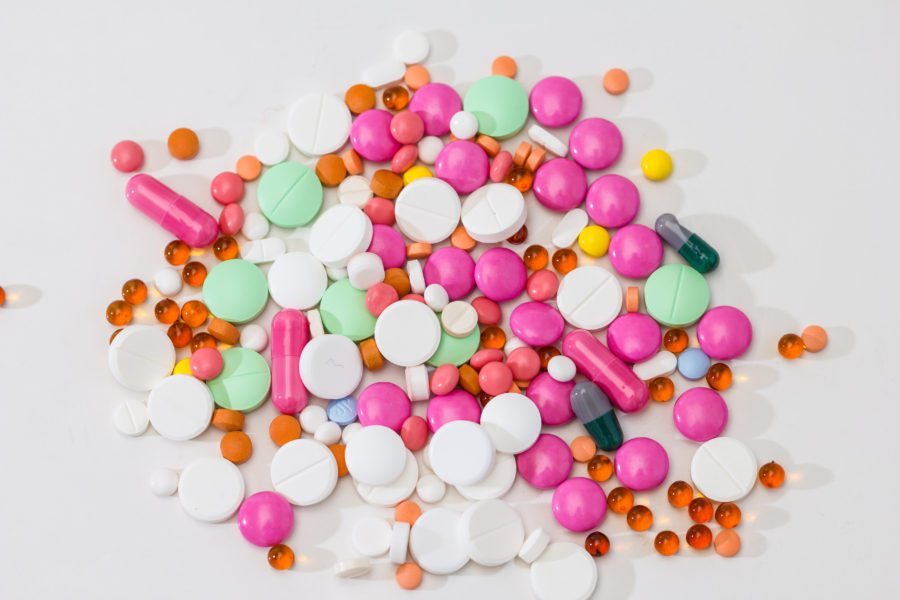New Jersey criminalizes the sale, possession, and distribution of controlled substances (such as cocaine) and prescription drugs (such as Xanax), which are also called “legend” drugs. While all of these offenses are serious, charges that involve sales or distribution tend to have tougher penalties than charges that are limited to possession for personal use. Even if the defendant didn’t make a profit through the alleged transaction, there can still be felony consequences – including prison time and fines in the hundreds of thousands. Our Atlantic City drug possession lawyers explain some of the penalties for sharing prescription drugs in New Jersey, and discuss the statute that makes these acts illegal.
Is it Illegal to Share Prescription Medication in New Jersey?
Giving one of your pills to a person who is in pain might seem like a charitable or helpful act. However, this is not the view that prosecutors and law enforcement take. On the contrary, there are many state and federal laws that make it illegal to share prescription medication with another person, even if no money changes hands in the transaction. If you or a loved one has been charged with a prescription drug offense in New Jersey, it is imperative to contact an experienced prescription drug charge lawyer immediately.
As the next section explains, you don’t necessarily have to make a profit in order to be charged with drug distribution in New Jersey. In fact, most of the crimes enumerated under New Jersey’s prescription drug statute do not necessarily involve financial gain as part of their definition. If you or a loved one has been charged with a prescription drug offense, contact an experienced New Jersey prescription drug charge lawyer immediately.
Prescription Drug Charges for Giving Away or Distributing Pills Under N.J.S.A. 2C:35-10.5
New Jersey’s prescription drug statute is N.J.S.A. § 2C:35-10.5. This statute serves two key legal functions:
- Defining various prescription drug offenses (establishing the reasons a defendant can be charged).
- Establishing the criminal penalties for prescription drug-related convictions in New Jersey.
N.J.S.A. § 2C:35-10.5 describes multiple prescription drug offenses, some of which are misdemeanors (“disorderly persons offenses”) and some of which are felonies (“indictable crimes”). However, even though many different offenses are defined under the statute, only one of the statute’s sections makes any reference to “pecuniary gain” (financial gain) as an element of a crime, or a fact that the prosecutor must prove. Under N.J.S.A. § 2C:35-10.5(a)(2), it is a fourth degree crime to:
- Distribute four or fewer “dosage units” or pills for pecuniary gain. (Sell four pills or less.)
- Have four or fewer dosage units under your control with intent to distribute them for pecuniary gain. (Have, and intend to sell, four pills or less.)
That is the only time “pecuniary gain” is referenced anywhere in the statute. You can be charged with any of the other offenses enumerated in the statute without charging, or earning, any money. Depending on the situation, allegedly sharing prescription pills can lead to any of the following criminal charges in New Jersey:
- N.J.S.A. § 2C:35-10.5(a)(3) – Possessing, distributing, or possessing with intent to distribute five to 99 dosage units. This is a third degree crime subject to a fine of up to $200,000 and a prison sentence of up to five years.
- N.J.S.A. § 2C:35-10.5(a)(4) – Possessing, distributing, or possessing with intent to distribute 100 dosage units or more. This is a second degree crime subject to a fine of up to $300,000 and a prison sentence of up to 10 years.
- N.J.S.A. § 2C:35-10.5(d) – Using forgery to obtain, or even try to obtain, possession of a prescription drug (e.g. forging a doctor’s signature). This is a fourth degree crime subject to a fine of up to $10,000 and up to 18 months in prison.
The above is not an exhaustive list of all allegations that can lead to prescription drug charges in New Jersey, but it gives you a sense of the types of scenarios that can lead to criminal prosecution – even if no money is involved.
Some examples of prescription drugs that people, particularly teenagers and college students, are commonly charged with possessing, sharing, or selling in New Jersey include:
Schedule II Drugs
- Adderall
- Demerol
- Dexedrine
- Dilaudid
- OxyContin
Schedule III Drugs
- Anabolic Steroids
- Ketamine
- Testosterone
Schedule IV Drugs
- Ambien
- Ativan
- Soma
- Xanax
- Valium

Was Your Son or Daughter Arrested for Sharing or Selling Pills in Atlantic City?
If you or a loved one has been charged with these or related offenses, our Atlantic City Xanax possession lawyers can provide the vigorous defense you are entitled to. At the Law Offices of John J. Zarych, our renowned legal team includes:
- Atlantic City Adderall Possession Lawyers
- Atlantic City OxyContin Possession Lawyers
- Atlantic City Valium Possession Lawyers
- Atlantic City Vicodin Possession Lawyers
With over 45 years of experience and offices conveniently located in Atlantic City, Cape May Court House, Northfield, and Wildwood, our legal team also serves many other communities throughout Southern New Jersey, including Brigantine, Egg Harbor, Galloway Township, Hamilton Township, Margate, Mays Landing, Ocean City, Pleasantville, Sea Isle City, and Ventnor. To set up a free legal consultation, call our law offices at (609) 616-4956 today.







